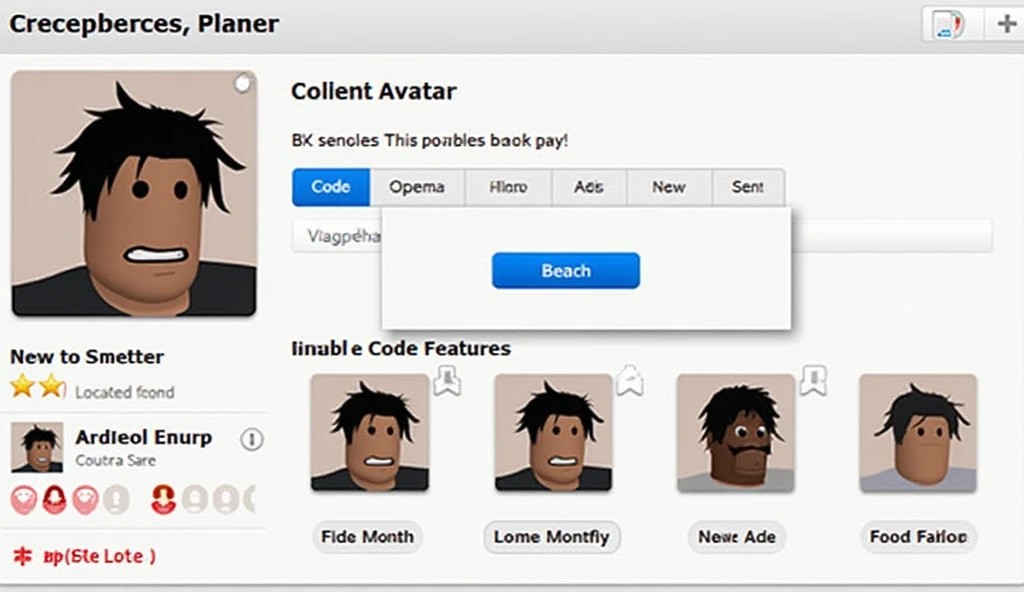When I sold my car, Kelley Blue Book became my go-to tool for setting the right price. The easy-to-use valuation process helped me understand my vehicle’s worth and attract serious buyers. Thanks to KBB, I felt confident in my sale and got a fair price.
Kelley Blue Book (KBB) is a trusted resource for determining the value of new and used vehicles. It provides comprehensive pricing information, expert reviews, and tools for car buyers and sellers.
Stay tuned with us as we dive into the world of Kelley Blue Book! We’ll explore how KBB can help you make informed decisions when buying or selling your vehicle.
What is Kelley Blue Book?
Kelley Blue Book (KBB) is a well-known resource for car buyers and sellers that helps determine the value of vehicles. It provides information about both new and used cars, making it easier for people to make informed decisions when buying or selling.
Kelley Blue Book was founded in 1926 by Les Kelley, who began by publishing a simple list of used car prices to help his own dealership sell vehicles. Over the years, KBB evolved into a trusted authority in the automotive market, offering detailed pricing information and insights about car values. Today, it is widely used across the United States and is considered a go-to resource for anyone looking to buy or sell a car.
What services are offered?
Kelley Blue Book offers a variety of services, including:
- Vehicle Valuations:KBB provides up-to-date pricing for new and used cars, helping buyers and sellers know the fair market value of a vehicle.
- Trade-In Values:For those looking to trade in their cars, KBB calculates trade-in values that dealerships might offer, making it easier to negotiate a good deal.
- Reviews and Ratings:KBB includes expert reviews and ratings for different car models, helping buyers understand the pros and cons of each vehicle.
- Market Insights:KBB tracks market trends, so users can see how the value of specific vehicles changes over time.
How Kelley Blue Book Calculates Vehicle Values?
Kelley Blue Book calculates vehicle values using a combination of factors, including:
- Market Data:KBB collects data from thousands of dealerships and private sales across the country. This data reflects what cars are actually selling for in real-time.
- Condition of the Vehicle:The value of a car can change significantly based on its condition—whether it’s in excellent, good, fair, or poor shape. KBB takes into account the wear and tear on a vehicle.
- Mileage:How many miles a car has been driven is a crucial factor. Generally, lower mileage means higher value.
- Make and Model:Some brands and models hold their value better than others due to their popularity, reliability, or performance.
- Additional Features:Features like upgraded technology, safety packages, or luxury elements can also influence a car’s value.
How to Use Kelley Blue Book?
Using Kelley Blue Book (KBB) offers several benefits for anyone involved in buying or selling a car.It provides accurate pricing information for both new and used vehicles.This means that you can find out how much a car is really worth in today’s market, helping you avoid overpaying when buying or underselling when selling.
Additionally, KBB offers valuable tools for both buyers and sellers. For buyers, it gives insights into private sale prices and trade-in values, making it easier to understand what you should be paying or receiving for a vehicle. Sellers can use these tools to set competitive prices and negotiate better deals.
Moreover, KBB provides insights into market trends and vehicle reliability ratings. This information helps buyers know which cars hold their value well and which ones may have issues, guiding them towards better purchasing decisions. Overall, KBB is a comprehensive resource that helps simplify the car buying and selling process, ensuring that you get the best possible value for your investment.
What are common myths and misconceptions about Kelley Blue Book?
When it comes to Kelley Blue Book (KBB), several myths and misconceptions can mislead car buyers and sellers. One common myth is that KBB values are always the final word on a vehicle’s worth. While KBB provides reliable estimates, actual selling prices can vary based on factors like location, market demand, and the condition of the vehicle. It’s important to use KBB as a guide rather than an absolute figure.
Another misconception is that KBB is only useful for used cars. In reality, KBB offers valuable information on both new and used vehicles, making it a helpful resource for anyone in the car market. Some people also believe that KBB values are outdated. However, KBB regularly updates its data based on current market trends and sales, so its values are generally quite accurate.
How Accurate are Kelley Blue Book Car Values When Selling a Car?
Kelley Blue Book (KBB) car values are widely regarded as a reliable resource for both buyers and sellers, providing an essential tool for understanding vehicle worth in the ever-changing automotive market. KBB’s valuation process combines several key components to ensure accuracy:
Market Data:
KBB collects extensive data from dealerships, private sales, and auctions nationwide. This real-time information includes sale prices, inventory levels, and regional demand trends, allowing KBB to create a comprehensive picture of what similar vehicles are currently selling for.
By analyzing this data, KBB can reflect the most up-to-date market conditions, helping users understand how economic factors influence car values.
Historical Sales Information:
In addition to current market data, KBB also considers historical sales information. This includes past pricing trends for specific makes and models over time, which can reveal how a vehicle’s value has fluctuated. Understanding these historical trends is crucial for anticipating how a car may perform in the future, especially when considering depreciation rates for different types of vehicles.
Vehicle Condition:
KBB emphasizes the importance of a vehicle’s condition in determining its value. Users can input detailed information about their car’s state, selecting from categories such as excellent, good, fair, or poor. Each classification affects the estimated value, ensuring that KBB’s figures are aligned with the car’s actual state. This focus on condition helps buyers and sellers arrive at more realistic pricing, minimizing the chances of overpricing or underpricing a vehicle.
Regional Variations:
It’s also important to note that KBB values can vary significantly by region. Factors such as local demand for specific vehicle types, climate considerations, and economic conditions can all influence car values. For instance, a vehicle that is popular in urban areas may command a higher price than in rural locations. KBB accounts for these regional differences, providing localized valuations that reflect what buyers are willing to pay in different markets.
What market trends does Kelley Blue Book highlight?
Kelley Blue Book (KBB) plays a significant role in providing insights into automotive market trends through its comprehensive reports. These reports help both consumers and industry professionals understand the dynamics of the car market. Here are some key aspects highlighted in KBB’s reports:
1. Popular Vehicle Types:
KBB frequently analyzes which vehicle types are trending in the market. For instance, it tracks the rise in popularity of SUVs and trucks, reflecting consumer preferences for larger vehicles that offer more space and versatility.
KBB’s reports often detail the most popular makes and models, helping buyers and sellers identify which vehicles are in demand. This information can guide potential buyers on what to look for and assist sellers in pricing their vehicles competitively.
2. Seasonal Price Changes:
KBB’s market reports also highlight how vehicle prices fluctuate with the seasons. For example, prices may rise in the spring and summer months when more people are looking to buy cars, while prices might dip in the winter when demand tends to decrease.
KBB provides insights into these seasonal trends, allowing sellers to time their sales strategically to maximize their vehicle’s value. Buyers can also benefit from understanding when prices are likely to be lower, helping them make more informed purchasing decisions.
3. Economic Factors Affecting Car Values:
KBB analyzes various economic factors that influence car values, such as interest rates, fuel prices, and overall economic conditions. For instance, rising interest rates can affect financing options, making it more expensive for buyers to finance a vehicle, which can lead to decreased demand and lower prices.
Additionally, fluctuations in fuel prices can shift consumer preferences toward more fuel-efficient vehicles or electric cars, impacting the resale values of larger, less efficient models.
4. Market Demand and Supply Dynamics:
KBB reports also examine the balance of supply and demand in the automotive market. For example, if there is a shortage of new vehicles due to supply chain issues, used car prices may rise as buyers seek alternatives.
KBB tracks inventory levels and sales data to provide insights into how these dynamics are shifting over time, which can be crucial for understanding the current state of the market.
5. Insights into Vehicle Reliability and Safety Ratings:
In addition to pricing trends, KBB evaluates vehicle reliability and safety ratings, which can affect resale values. Cars that consistently receive high reliability scores and safety ratings tend to hold their value better. KBB’s reports on these factors help consumers make informed choices about which vehicles are likely to perform well in the long run.
FAQs:
Can I trust KBB values when negotiating with a dealership?
Yes, its values are widely recognized in the automotive industry, providing a solid reference point for negotiations. However, actual offers may vary based on the dealership’s policies and market conditions.
What should I do if my car’s condition is better or worse than KBB’s description?
If your car is in better or worse condition than KBB’s categories, consider adjusting the value accordingly when pricing it for sale or negotiating.
How often does Kelley Blue Book update its vehicle valuations?
KBB updates its values regularly to reflect current market conditions, ensuring that users have access to the most accurate pricing information.
Can I use Kelley Blue Book for vehicles that are not commonly sold?
While KBB is designed for mainstream vehicles, it can also provide estimates for less common vehicles. However, for rare or specialty cars, consulting an independent appraiser may yield more accurate results.
Does KBB provide any resources for first-time car buyers?
Yes, KBB offers various guides and articles that help first-time buyers understand the car-buying process, from financing options to negotiating tips.
How does KBB handle electric and hybrid vehicle valuations?
KBB takes into account the specific market trends and consumer demand for electric and hybrid vehicles when determining their values, as these can differ from traditional gasoline-powered cars.
Can I rely on KBB values for trade-ins?
KBB provides trade-in values, which can help you negotiate better offers at dealerships, but keep in mind that actual trade-in offers may vary.
Is there a cost to access Kelley Blue Book’s valuation tools?
No, KBB’s vehicle valuation tools and resources are free to access on their website and app.
Conclusion:
While Kelley Blue Book is a valuable tool for estimating car values, it’s essential for users to remember that these values are starting points.Individual circumstances, such as unique vehicle features, mileage, and the seller’s negotiation skills, can significantly impact the final sale price.
By using KBB values as a guideline and supplementing them with local market research and personal insights, buyers and sellers can make informed decisions and achieve fair outcomes in their vehicle transactions. Ultimately, KBB serves as a trusted resource, but successful buying and selling also depend on a combination of research, preparation, and flexibility in negotiations.
Read more:





